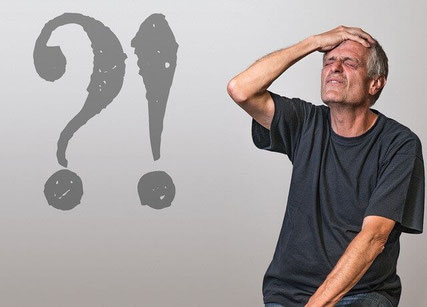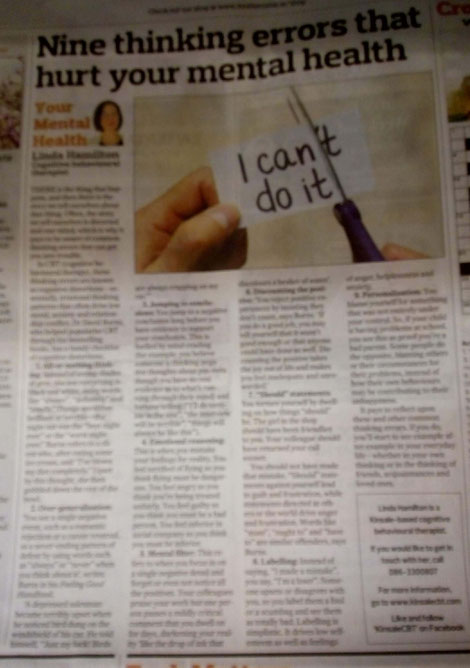2024 · 30. December 2024
Could you miss a gorilla in a room full of people? It sounds impossible, but it happens more often than you might think, as documented in a famous psychological experiment. My latest column explores the gorilla experiment, and how we can be blind to the obvious when our attention is elsewhere.
2024 · 13. June 2024
Do you assume your hard work and sacrifice must be rewarded? Do you get frustrated when life doesn’t unfold according to your expectations? My latest Southern Star column looks at a common cognitive distortion known as the Heaven’s reward fallacy.
2024 · 11. January 2024
A negative thinking style can hurt your mood and well-being. My latest Southern Star column offers some CBT tips on how to develop a more helpful, balanced thinking style in 2024.
2023 · 14. December 2023
CBT places a lot of emphasis on cognitive distortions – essentially, thinking errors that can hurt our mental health. In my latest Southern Star column, I talk about one of the most common and potentially damaging cognitive distortions – disqualifying the positives in your life.
2022 · 19. May 2022
My last column suggested that self-criticism, avoidance, routine worrying, not exercising, and routinely discounting the positives in one’s life are great ways of being unhappy. Here are a few more tips on how to be as unhappy as possible.
2021 · 26. August 2021
Perfectionism can have seriously damaging emotional consequences and is linked with a whole host of mental health problems. How can you change a perfectionist thinking style?
2021 · 15. July 2021
"I must always feel completely in love with my partner, or else he is not 'the one'"; "I noticed another attractive person so I must not love my partner"; "I often get angry with my partner so I must not love him"; "Other couples are happy all the time".
All-or-nothing thinking, catastrophising, hyper-responsibility, excessive 'should' statements – my latest column explores thinking errors often seen in cases of relationship OCD (ROCD).
2018 · 14. June 2018
In CBT, thinking errors are known as cognitive distortions – essentially, unhelpful thinking patterns that often drive low mood, anxiety and relationship conflict. In last week's Southern Star, I explored how it pays to be aware of common thinking errors that can hurt your mental health. The column is reproduced below. There is the thing that happens, and then there is the story we tell ourselves about that thing. Often, the story we tell ourselves is distorted and one-sided, which is why it...



